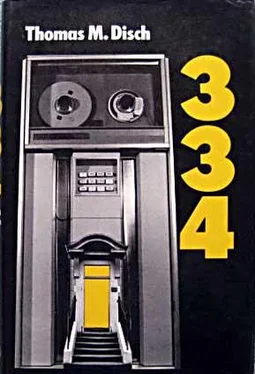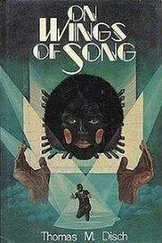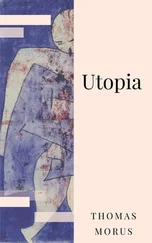In the mirror her face above his and his face below hers melted together and became one face. It was not simply that she had drawn her own features on his blank slate, or that one was a parody of the other. There was a worse truth—that this was the whole portion Mickey stood to inherit, nothing but these marks of pain and terror and certain defeat. It she’d written the words on his forehead with the eyebrow pencil it couldn’t have been any clearer. And on hers, and on hers. She lay down on the bed and let slow, depthless tears rise and fall. For a while Mickey stared at her, and then he went outside, down to the street.
11. Crossing Brooklyn Ferry (2026)
The whole family was there for the program—Shrimp and Lottie on the sofa with Mickey between them, Mrs. Hanson in the rocker, Milly, with little Peanut in her lap, in the flowered armchair, and Boz beside them being a nuisance on one of the chairs from the kitchen. Amparo, whose triumph this was to be, was everywhere at once, fretting and frothing.
The sponsors were Pfizer and the Conservation Corporation. Since neither had anything to sell what everybody wasn’t buying already, the ads were slow and heavy, but no slower and heavier, as it turned out, than Leaves of Grass.
Shrimp tried gamely for the first half hour to find aspects to admire—the costumes were ultra-authentic, the brass band went oomp-pa-pa very well, and there was a pretty sequence of some brawny blacks hammering a wooden house together. But then Don Hershey would reappear as Whitman, bellowing his dreadful poems, and she would just shrivel up.
Shrimp had grown up idolizing Don Hershey, and to see him reduced to this! A dirty old man slobbering after teenagers. It wasn’t fair.
“It makes a fella kinda glad he’s a Democrat,” Boz drawled, when the ads came on again, but Shrimp gave him a dirty look: no matter how dreadful it was they were obliged, for Amparo’s sake, to praise it.
“I think it’s wonderful,” Shrimp said. “I think it’s very artistic. the colors!” It was the utmost she could manage.
Milly, with what seemed honest curiosity, filled up the rest of station identification with classroom-type questions about Whitman, but Amparo brushed them aside. She no longer kept up a pretense that the show was about anyone but herself.
“I think I’m in the next part. Yes, I’m sure they said part two.”
But the second half hour concerned the Civil War and Lincoln’s assassination:
O powerful western fallen star! O shades of night!—O moody, tearful night! O great star disappear’d—O the black murk that hides the star!
For half an hour.
“You don’t suppose they’ve cut out your scene, do you, Amparo?” Boz teased. They all came down on him together. Clearly it was what they’d all thought to themselves.
“It’s possible,” Amparo said dourly.
“Let’s wait and see,” Shrimp advised, as though they might have done anything else.
The Pfizer logo faded away, and there was Don Hershey again in his Santa Claus beard roaring off into a vast, new poem:
The impalpable sustenance of me from all things at all hours of the day,
The simple, compact, well-joined scheme, myself disintegrated, every one disintegrated yet part of the scheme,
The similitudes of the past and those of the future,
The glories strung like beads on my smallest sights and hearings, on the walk on the street and the passage over the river….
And so on, endlessly, while the camera roved about the streets and over the water and looked at shoes—floods of shoes, centuries of shoes. Then, abrupt as flipping to another channel, it was 2026, and an ordinary crowd of people mulled about in the South Ferry waiting room.
Amparo rolled herself into a tight ball of attention. “This is it, coming up now.”
Don Hershey rolled on, voice-over:
It avails not time nor place—distance avails not,
I am with you, you men and women of a generation, or ever so many generations hence,
Just as you feel when you look on the river and sky, so I felt,
Just as any of you is one of a living crowd, I was one of a crowd,
Just as you are refreshed by the gladness of the river….
The camera panned past conglomerations of smiling, gesturing, chattering people, filing into the boat, pausing now and then to pick out details—a hand picking nervously at a cuff, a yellow scarf lifting in a breeze and falling, a particular face.
Amparo’s.
“There I am! There!” Amparo screamed.
The camera lingered. She stood at the railing, smiling a dreamy smile that none of them watching could recognize. As Don Hershey lowered his volume and asked:
What is then between us?
What is the count of the scores or hundreds of years between us?
Amparo regarded, and the camera regarded, the moving surface of the water.
Shrimp’s heart splattered like a bag of garbage dropped to the street from a high rooftop. Envy spilled out through her every vein. Amparo was so beautiful, so young and so damnably beautiful, she wanted to die.
In cross section the building was a swastika with the arms revolving counterclockwise, the Aztec direction. 1812, the Hansons’ apartment, was located halfway along the inner forearm of the swastika’s northwest limb, so that its windows commanded an uninterrupted view of several degrees southwestwards across the roofs of the lower buildings as far as the windowless, megalithic masses of the Cooper Union complex. Above: blue sky and roving clouds, jet trails and smoke wreathing up from the chimneys of 320 and 328. However one had to be right at the window to enjoy this vista. From the bed Shrimp could see only a uniformity of yellow brick and windows variegated with different kinds of curtains, shades, and blinds. May—and from two until almost six, when she needed it most, there was direct, yellow sunlight. It was the only advantage of living so near the top. On warm days the window would be opened a crack and a breeze would enter to ruffle the curtains. Lifting and falling, like the shallow erratic breathing of an asthmatic, billowing, collapsing, the curtains became, as anything watched intently enough will, the story of her life. Did any of those other curtains, shades, or blinds conceal a sadder story? Ah, she doubted it.
But sad as it was, life was also irrepressibly comic, and the curtains caught that too. They were a mild, elaborate joke between Mrs. Hanson and her daughter. The material was a sheer spun chintz in sappy ice cream colors patterned with sprigs and garlands of genitalia, his and hers, raspberry, lemon, and peach. A present from January, some ages ago. Loyally Shrimp had brought it home for her mother to make her a pajama suit from, but Mrs. Hanson, without overtly disapproving, had never got round to the job.
Then, while Shrimp was in the hospital, Mrs. Hanson had made the material up into a pair of curtains and hung them in their bedroom as homecoming surprise and peace offering. Shrimp had to admit that the chintz had met its just reward.
Shrimp seemed content to float through each day without goals or ideas, just watching the cunts and cocks wafted by the breeze and whatever other infinitesimal events the empty room presented her with. Teevee annoyed her, books bored her, and she had nothing to say to visitors. Williken brought her a jigsaw puzzle, which she worked on on an upside-down dresser drawer, but once the border was assembled she found that the drawer, through it had been measured in advance, was an inch too short. Surrendering with a sigh, she swept the pieces back in the box. In every way her convalescence was inexplicable and calm.
Then one day there was a tapping at the door. She said, prophetically, “Come in.” And January came in, wet with rain and breathless from the stairs. It was a surprise. January’s address on the West Coast had been a well-kept secret.
Читать дальше












